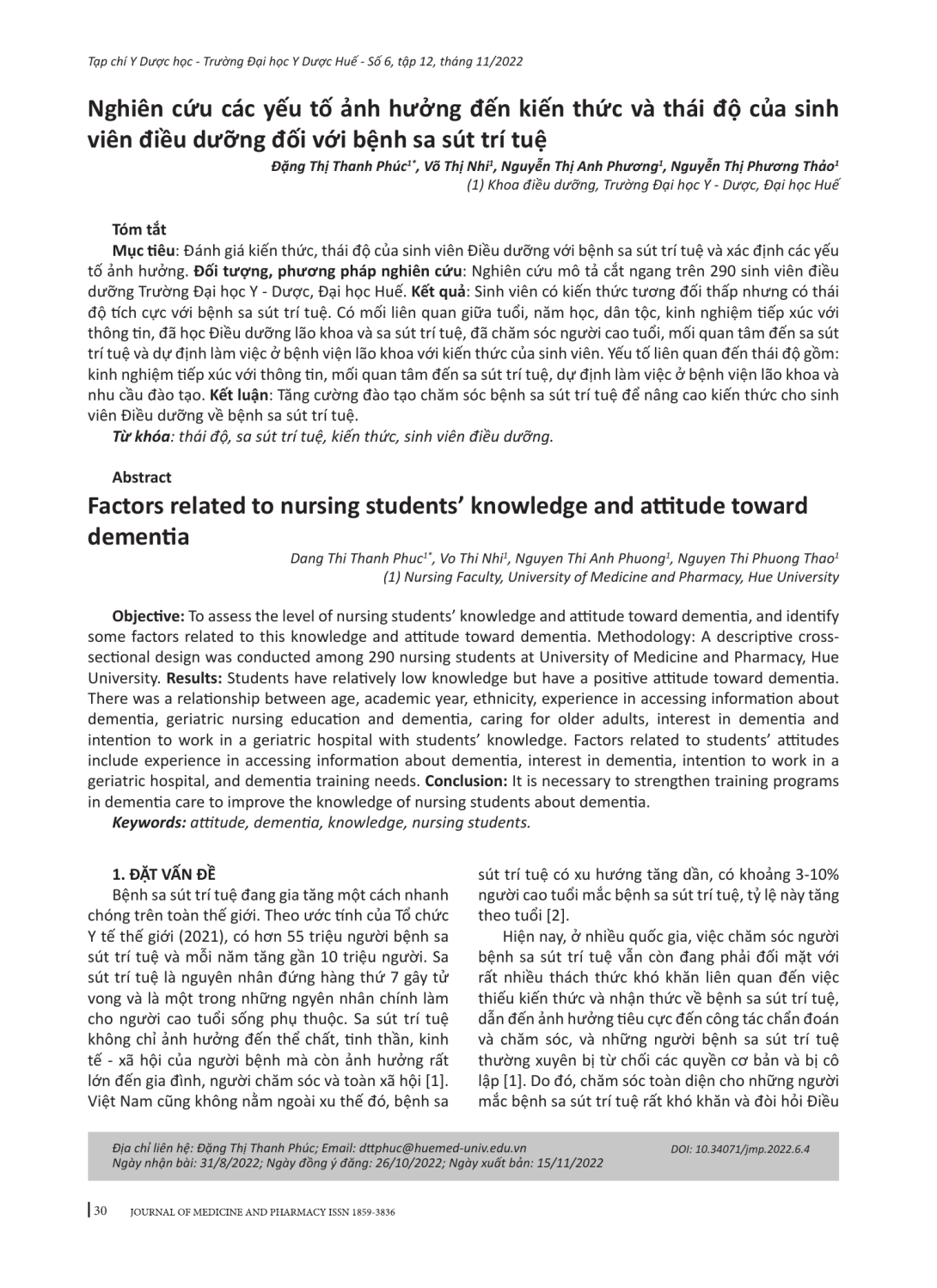
Đánh giá kiến thức, thái độ của sinh viên Điều dưỡng với bệnh sa sút trí tuệ và xác định các yếu tố ảnh hưởng. Đối tượng, phương pháp nghiên cứu: Nghiên cứu mô tả cắt ngang trên 290 sinh viên điều dưỡng Trường Đại học Y - Dược, Đại học Huế. Kết quả: Sinh viên có kiến thức tương đối thấp nhưng có thái độ tích cực với bệnh sa sút trí tuệ. Có mối liên quan giữa tuổi, năm học, dân tộc, kinh nghiệm tiếp xúc với thông tin, đã học Điều dưỡng lão khoa và sa sút trí tuệ, đã chăm sóc người cao tuổi, mối quan tâm đến sa sút trí tuệ và dự định làm việc ở bệnh viện lão khoa với kiến thức của sinh viên. Yếu tố liên quan đến thái độ gồm: kinh nghiệm tiếp xúc với thông tin, mối quan tâm đến sa sút trí tuệ, dự định làm việc ở bệnh viện lão khoa và nhu cầu đào tạo. Kết luận: Tăng cường đào tạo chăm sóc bệnh sa sút trí tuệ để nâng cao kiến thức cho sinh viên Điều dưỡng về bệnh sa sút trí tuệ.
To assess the level of nursing students’ knowledge and attitude toward dementia, and identify some factors related to this knowledge and attitude toward dementia. Methodology: A descriptive crosssectional design was conducted among 290 nursing students at University of Medicine and Pharmacy, Hue University. Results: Students have relatively low knowledge but have a positive attitude toward dementia. There was a relationship between age, academic year, ethnicity, experience in accessing information about dementia, geriatric nursing education and dementia, caring for older adults, interest in dementia and intention to work in a geriatric hospital with students’ knowledge. Factors related to students’ attitudes include experience in accessing information about dementia, interest in dementia, intention to work in a geriatric hospital, and dementia training needs. Conclusion: It is necessary to strengthen training programs in dementia care to improve the knowledge of nursing students about dementia.
- Đăng nhập để gửi ý kiến
